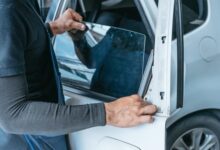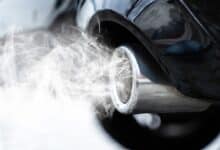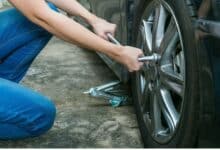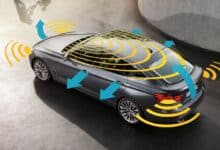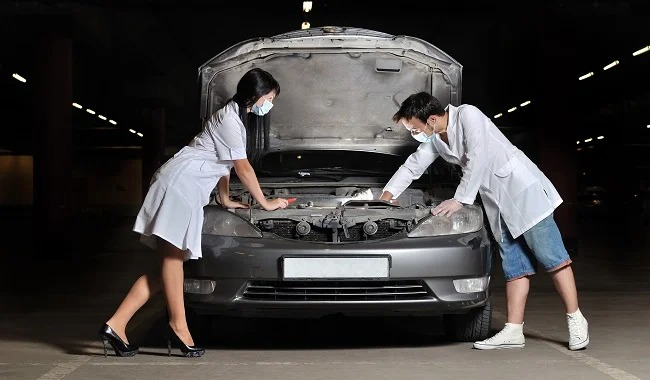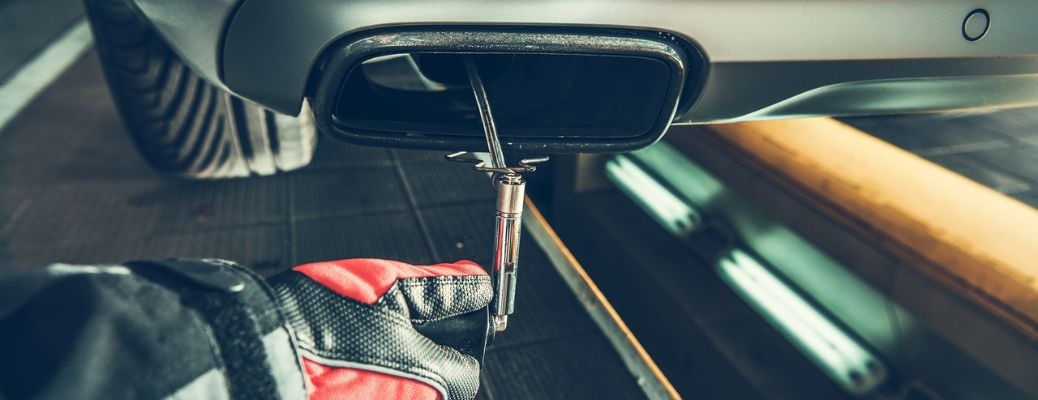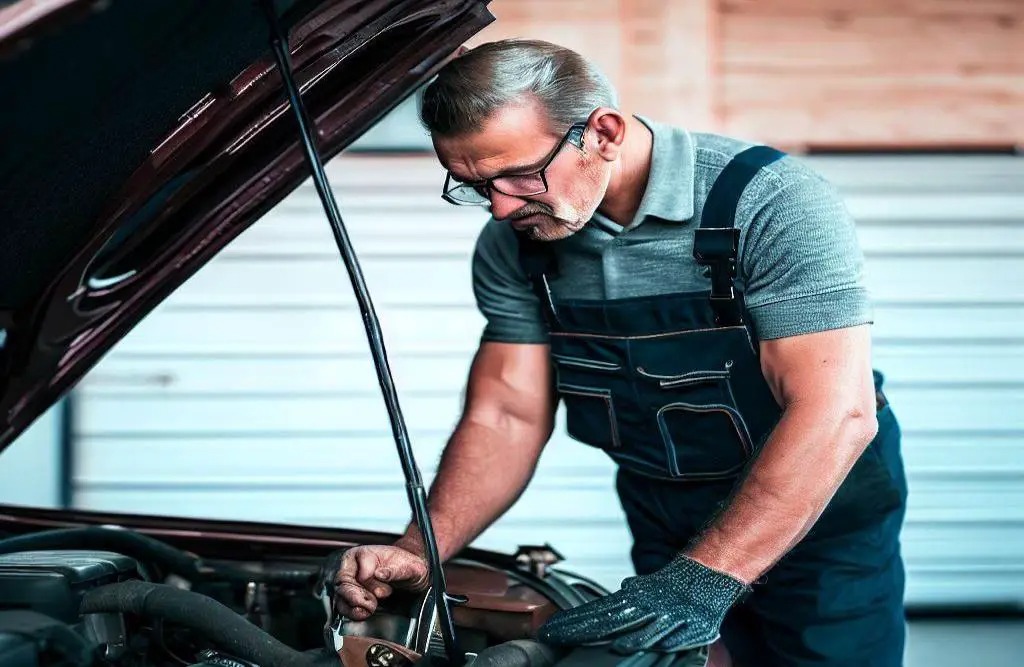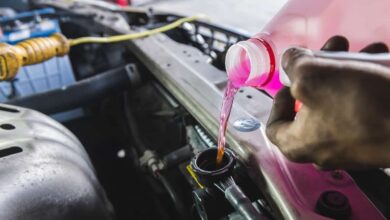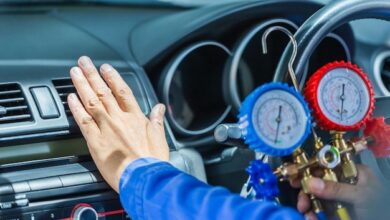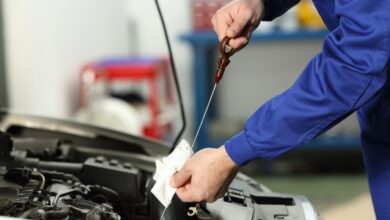What do you need to pay attention to in car maintenance?

To maintain performance and ensure driving safety, car maintenance plays an important role. But to do it properly, what do you need to pay attention to? Let’s learn about the important factors in car maintenance to ensure that your car is always in the best and safest operating condition.

Contents
- 1 Introduction: The Importance of Car Maintenance
- 2 Regular Check-Ups: Keeping an Eye on Your Vehicle’s Health
- 3 Engine Maintenance: Ensuring Optimal Performance
- 4 Fluid Checks and Changes: Essential Fluids Your Car Needs
- 5 Tire Care: Maximizing Safety and Longevity
- 6 Battery Maintenance: Staying Powered Up
- 7 Brake System: Maintaining Efficient Stopping Power
- 8 Exterior and Interior Care: Preserving Your Car’s Appearance
- 9 Electrical System: Keeping Your Car’s Electronics in Check
- 10 The Benefits of Regular Car Maintenance
Introduction: The Importance of Car Maintenance
Car maintenance is not just about keeping your vehicle looking good; it is a vital aspect of ensuring safety, reliability, and longevity. Regularly servicing your car and paying attention to specific maintenance tasks can prevent costly repairs, enhance fuel efficiency, and improve overall performance.
Neglecting car maintenance can lead to unexpected breakdowns, reduced resale value, and even compromise your safety on the road. By understanding the critical areas of car maintenance and implementing a routine maintenance schedule, you can avoid these issues and enjoy a well-running vehicle for years to come.
Regular Check-Ups: Keeping an Eye on Your Vehicle’s Health
One of the fundamental aspects of car maintenance is conducting regular check-ups to monitor your vehicle’s health. This involves inspecting various components, fluids, and systems to identify any potential issues before they become major problems.
Engine Oil: Checking the engine oil level regularly is essential for adequate lubrication and preventing engine damage. Ensure the engine is cool, locate the dipstick, remove it, wipe it clean, reinsert it, and then check the oil level against the markings.
Coolant: The coolant helps regulate the engine’s temperature, preventing overheating. Regularly check the coolant level in the coolant reservoir when the engine is cool, and top it up if necessary with the manufacturer-recommended coolant mixture.
Transmission Fluid: Transmission fluid is vital for smooth gear shifting and preventing excessive wear. Similar to engine oil, locate the dipstick for the transmission fluid, check the level, and top it up if needed.
Brake Fluid: Brake fluid ensures the proper functioning of the braking system. Low brake fluid levels can lead to reduced braking performance. Check the brake fluid level in the reservoir and top it up if required.
Power Steering Fluid: Power steering fluid enables easy steering control. Inspect the power steering fluid level and top it up if necessary.
Battery: Regularly check the battery terminals for corrosion or loose connections. Clean the terminals if needed and ensure they are tightened securely.
Belts and Hoses: Inspect the belts for any signs of wear or cracking. Similarly, check hoses for leaks or bulges that may indicate a need for replacement.
Lights: Ensure all lights are working correctly, including headlights, taillights, turn signals, and brake lights. Replace any defective bulbs promptly.
Filters: Regularly inspect and replace air filters, oil filters, and fuel filters according to the manufacturer’s recommendation.
See more: Notes when changing Oil and filter changes
Engine Maintenance: Ensuring Optimal Performance
The engine is the heart of your vehicle, so proper maintenance is crucial for optimal performance and longevity.
Regular Oil Changes: Changing the engine oil at regular intervals helps remove contaminants, lubricates internal parts, and maintains engine efficiency. Follow the manufacturer’s guidelines for oil change frequency based on your vehicle’s make and model.
Air Filter Replacement: A clean air filter ensures optimal airflow to the engine, improving fuel efficiency and preventing damage to internal components. Replace the air filter at recommended intervals or if it appears dirty.
Spark Plug Inspection and Replacement: Spark plugs play a vital role in igniting the fuel-air mixture in the engine cylinders. Inspect them regularly for signs of wear or deposits and replace them as needed to maintain smooth engine operation.
Timing Belt Replacement: Some vehicles have timing belts that need replacement at specific mileage intervals. Failure to replace a worn timing belt can result in severe engine damage.
Drive Belt Inspection: Inspect drive belts for any signs of wear, cracking, or fraying. Replace them if necessary to avoid unexpected belt failure.
Fluid Checks and Changes: Essential Fluids Your Car Needs
Proper maintenance of essential fluids is crucial for various vehicle systems’ optimal performance and longevity.
Engine Coolant: As mentioned earlier, regularly check engine coolant levels and top up as needed with the recommended mixture.
Brake Fluid: Check brake fluid levels regularly and replace it according to the manufacturer’s recommendation or if it becomes contaminated.
Power Steering Fluid: Inspect power steering fluid levels and top up if required using the manufacturer-recommended fluid.
Transmission Fluid: Just like engine oil, transmission fluid needs periodic checks and changes as specified by the manufacturer.
Windshield Washer Fluid: Ensure your windshield washer fluid reservoir is always topped up to maintain clear visibility while driving.
Tire Care: Maximizing Safety and Longevity
Tires play a vital role in ensuring safety while driving and maximizing fuel efficiency. Proper tire maintenance includes:
Regular Tire Pressure Checks: Maintain proper tire pressure based on the manufacturer’s specifications. Underinflated or overinflated tires can negatively affect handling, fuel economy, and tire lifespan.
Tire Rotation: Regularly rotate your tires to ensure even wear across all four tires. This practice extends tire life and enhances overall performance.
Wheel Alignment: Misaligned wheels can cause uneven tire wear and affect handling. Get your wheels aligned periodically or if you notice any signs of misalignment such as pulling to one side.
Tire Tread Depth: Monitor tire tread depth regularly using a tread depth gauge or the penny test. Replace tires when they reach the minimum recommended tread depth to maintain traction on wet or slippery surfaces.
Spare Tire Inspection: Don’t forget to inspect your spare tire periodically to ensure it is properly inflated and in good condition in case of emergencies.
Battery Maintenance: Staying Powered Up
A well-maintained battery ensures reliable starting power for your vehicle. Follow these battery maintenance tips:
Cleaning Battery Terminals: Over time, battery terminals may accumulate corrosion, which can hinder proper electrical connections. Clean the terminals with a battery terminal cleaner or a mixture of baking soda and water regularly.
Securing Battery Connections: Ensure that battery connections are tight and secure to prevent electrical issues or power loss.
Battery Testing: Periodically test your battery’s voltage using a multimeter or have it tested by a professional if you notice any signs of a weak battery such as slow cranking or dim headlights.
Battery Replacement: If your battery is old or showing signs of deterioration, consider replacing it proactively to avoid unexpected breakdowns.
Brake System: Maintaining Efficient Stopping Power
Proper brake maintenance is essential for your safety on the road. Here are some brake system maintenance tasks you should perform:
Brake Pad Inspection: Regularly inspect brake pads for excessive wear. Consult your vehicle’s manual for specifications on minimum thickness levels or have them checked by a professional.
Brake Rotor Inspection: Inspect brake rotors for signs of damage or excessive wear. If you notice deep grooves or scoring on the rotor surface, consider having them resurfaced or replaced as necessary.
Brake Fluid Replacement: As mentioned earlier, regularly check brake fluid levels and replace it according to manufacturer recommendations or if it becomes contaminated.
Brake System Bleeding: Air bubbles in the brake lines can compromise braking performance. Bleeding the brake system periodically removes air from the lines, maintaining optimal stopping power.
Exterior and Interior Care: Preserving Your Car’s Appearance
Regular cleaning and maintenance of both the exterior and interior will not only keep your car looking great but also preserve its value over time.
Exterior Washing: Wash your car regularly using a mild car detergent and a soft sponge or microfiber cloth to remove dirt, grime, and contaminants that can damage paintwork.
Waxing/Polishing: Applying a protective wax or polish helps maintain a glossy finish while protecting against UV rays and other environmental factors that can fade or damage paint.
Interior Cleaning: Vacuum clean the interior regularly to remove dust, debris, and other particles that can cause wear on upholstery and carpeting. Use appropriate cleaners for various surfaces like leather, fabric, plastic, etc., to maintain their condition.
Dashboard Protection: Use a dashboard protectant to prevent cracking or fading of plastic or vinyl surfaces caused by prolonged sun exposure.
Window Cleaning: Keep windows clean for optimal visibility by using a glass cleaner and microfiber cloth both inside and outside of your vehicle.
Electrical System: Keeping Your Car’s Electronics in Check
The modern car is equipped with various electronics systems that require regular maintenance:
Lights Inspection: As mentioned earlier, regularly inspect all exterior lights to ensure they are functioning correctly.
Fuses Check: Periodically check fuses for any blown ones that may cause electrical issues in your vehicle’s various systems.
Electrical Wiring Inspection: Visually inspect electrical wiring for any signs of damage or loose connections that might affect electrical performance.
Audio System Maintenance: Follow manufacturer instructions for cleaning audio system components such as CD/DVD players, speakers, amplifiers, etc., to maintain optimal sound quality.
The Benefits of Regular Car Maintenance
Regular car maintenance is crucial for keeping your vehicle in excellent condition and extending its lifespan. By following routine maintenance tasks discussed in this guide, you can enjoy several benefits:
- Increased reliability
- Enhanced safety
- Improved fuel efficiency
- Decreased likelihood of unexpected breakdowns
- Preservation of resale value
- Prevention of costly repairs
Remember that while this guide provides a comprehensive overview of car maintenance tasks, always refer to your vehicle’s manual for specific recommendations based on its make and model. By investing time and effort into regular car maintenance, you’ll reap long-term rewards in terms of performance, safety, and longevity for your beloved vehicle!
See more news at: car care vip



